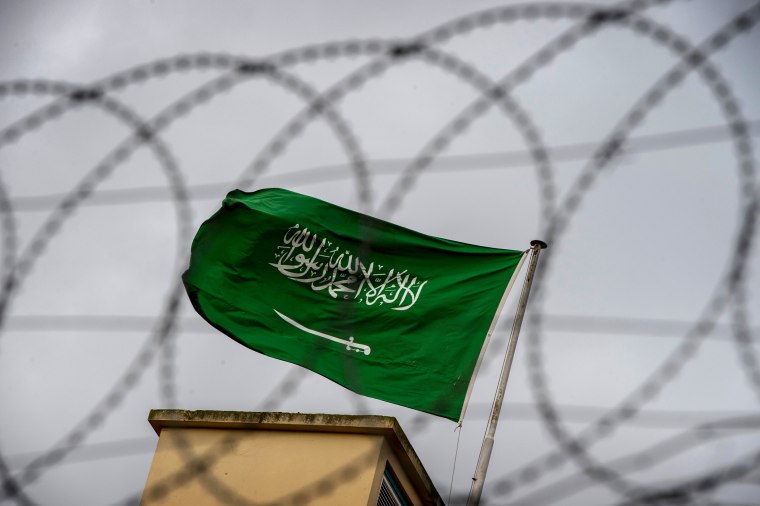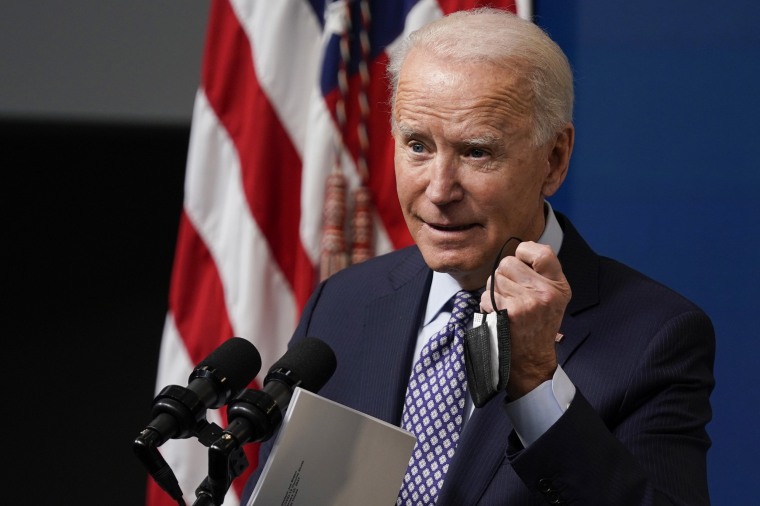President Joe Biden spoke with King Salman of Saudi Arabia on Thursday, ahead of the release of a highly anticipated U.S. intelligence report which concluded that the royal's son approved of an operation to capture or kill journalist Jamal Khashoggi.
Crown Prince Mohammed bin Salman's "control of decision making in the Kingdom, the direct involvement of a key adviser and members of Muhammad bin Salman's protective detail in the operation, and the Crown Prince's support for using violent measures to silence dissidents abroad, including Khashoggi," had led CIA and other agencies to make the assessment, the Office of the Director of National Intelligence said in the report posted on its website.
While the overall conclusion was first reported two years ago, Biden declassified the report, reversing a decision by his predecessor, former President Donald Trump.
Ahead of the release of the report, Biden and King Salman discussed regional security and “affirmed the historic nature of the relationship,” between the two countries, according to a White House readout of the call. Biden also “noted positively” the recent release of Loujain al-Hathloul, a Saudi women's rights activist who had been imprisoned for nearly three years, it said.
Notably missing from the readout was any mention about expected release of the report about the killing of Khashoggi, a columnist for The Washington Post and a permanent resident of the U.S. His remains have never been found.

The decision to call King Salman rather than his son, the de facto leader of Saudi Arabia, was widely interpreted as an attempt by the White House to keep the crown prince, popularly known as MBS, at arm’s length.
Since assuming his role in 2017, the 35-year-old prince has presided over a sweeping crackdown on intellectuals, clerics, women's rights activists, as well as members of the royal family.
Download the NBC News app for breaking news and politics
Although the CIA concluded that he approved Khashoggi’s killing, the crown prince maintained close ties with Washington under Trump and continued to portray himself as a reformer eager to transform Saudi Arabia's deeply conservative society.
Trump chose the kingdom as his first foreign trip as president and stood by the country’s leadership, even after the CIA findings.
Saudi Arabia's government initially denied playing any role in Kashoggi's death, although it later changed tack and said he was killed by accident. The crown prince has said the killing was carried out without his knowledge, but in a 2019 interview with PBS' "Frontline” he said, "I get all the responsibility, because it happened under my watch."
That year, eight men were also convicted of Khashoggi's murder in a Saudi Arabian court — a trial called a farce by many international observers. Five were sentenced to the death penalty, but these were commuted to 20 years after they were allegedly forgiven by Khashoggi's relatives.
The Biden administration’s decision to make the report public is a steep change from Trump's policy, although it remains unclear how publication of the report will affect U.S. ties with the oil-rich kingdom.
Saudi Arabia, seen as a leader in the Sunni Arab world, has long been an important American ally in the Middle East, cooperating on counterterrorism, acting as a bulwark against Iran and presiding over crucial oil reserves.
As a presidential candidate however, Biden made clear that he planned to "reassess" Washington’s relationship with Riyadh and said he would make the Saudis “the pariah that they are.”

His administration paused big-ticket arms sales to Saudi Arabia and ended U.S. support for the grinding Saudi-led war in Yemen, which has helped trigger what many consider the world’s worst humanitarian crisis.
In the call with King Salman, Biden discussed the renewed diplomatic efforts to end the Yemen conflict and the U.S. commitment to help Saudi Arabia defend its territory as it faces attacks against Iranian-aligned groups, according to the White House readout.
He also affirmed the importance the United States places on universal human rights and the rule of law and told the king he would work to make the bilateral relationship as strong and transparent as possible, the readout added.
A separate readout of the call released by the state run Saudi Press Agency stressed discussions on Iran, among other issues.
"Iranian behavior in the region, its destabilizing activities and its support for terrorist groups were discussed," it said.
King Salman also affirmed the kingdom’s keenness to reach a comprehensive political solution in Yemen and both leaders stressed the “depth of the relationship” between the two countries, it added.
The call came on the same day that Biden ordered airstrikes on buildings in Syria that the Pentagon said were used by Iranian-backed militias, in retaliation for rocket attacks on U.S. targets in neighboring Iraq.
The operation was the first known use of military force by the Biden administration.